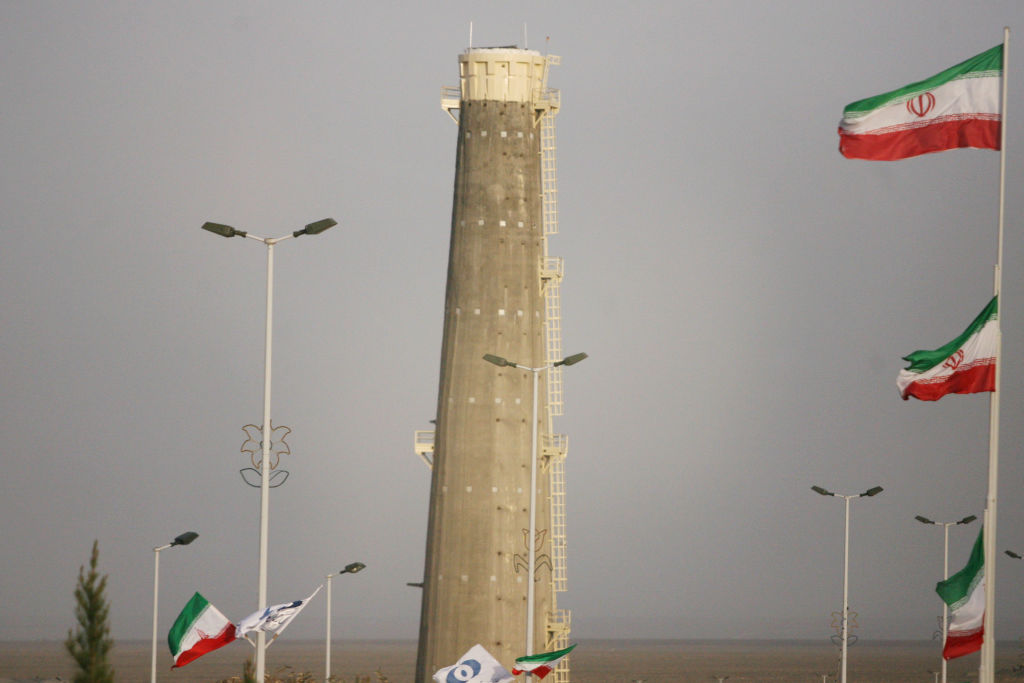Attack on Iranian facility could derail talks to restart nuclear deal

On 11 April, Iran’s nuclear reprocessing facility at Natanz suffered a major sabotage attack that has probably set the country’s nuclear enrichment program back at least nine months. On the same day, the Israeli public broadcaster Kan, citing unnamed Israeli and US intelligence sources, reported that Israel was behind the attack and that ‘Mossad was involved.’ A New York Times report, citing anonymous American and Israeli officials, also claimed that Israel was behind the ‘large explosion that completely destroyed the heavily protected internal power system that supplies the underground centrifuges that enrich uranium’.
On 12 April, Iranian Foreign Minister Javad Zarif put the blame squarely on Israel and declared that ‘the Zionists want to take revenge on the Iranian people for their success in lifting the oppressive sanctions, but we will not allow it and we will take revenge on the Zionists themselves’. He went on to say, ‘The latest attack at the Natanz nuclear facilities and sanctions will not give the United States leverage in talks to restore Iran’s nuclear deal.’ He declared that Iran is ready to come back into full compliance with the Joint Comprehensive Plan of Action (JCPOA) once the US has lifted all of its unilateral sanctions. ‘But the Americans should know that neither sanctions nor acts of sabotage will give them negotiation tools and these acts will only make the situation more difficult for them.’
The incident at the Natanz nuclear site occurred on the same day that US Defense Secretary Lloyd Austin met his Israeli counterpart Benny Gantz in Tel Aviv. Austin made no mention of Iran in his public remarks but stated clearly that the Biden administration would continue to ensure the Jewish state’s ‘qualitative military edge’ in the Middle East as part of a ‘strong commitment to Israel and the Israeli people’. He went on to declare that during his meeting with Gantz he had ‘reaffirmed [that] our commitment to Israel is enduring and it is ironclad’.
While Austin’s visit may have been just a coincidence, the timing of the explosion at Natanz makes it extremely likely that Israel was responsible. This act of ‘nuclear terrorism’, as it has been called by the Iranian regime, has coincided with talks in Vienna between Iran and the other parties to the JCPOA aimed at facilitating America’s return to the treaty, ending sanctions imposed on Iran by the Trump administration, and bringing Iran back into compliance with the restrictions imposed on its nuclear program by the JCPOA.
These negotiations have reached a crucial stage. The technical-level meetings held last week that set up two working groups—one to list the US sanctions imposed in 2018 that would need to be lifted and the other to gauge what measures Iran must adopt to return to full compliance with the treaty—ended on an optimistic note. Talks resumed this week that by all accounts had been heading in a positive direction.
These developments should be put in the context of the encouraging statements made by both the Iranian regime and the Biden administration. US President Joe Biden promised to return to the nuclear deal even before assuming office so long as Iran also came back into compliance. Iranian President Hassan Rouhani and Zarif have made equally positive statements regarding the prospects of the US returning to the deal and lifting sanctions against Iran. Biden’s press secretary, Jen Psaki, in her very first press conference, clearly stated that the new administration intended to constrain Iran through diplomacy, not sanctions, and reaffirmed Biden’s position that he would be willing to return to the JCPOA if Tehran does the same.
The Iranian regime also signalled that it would be willing to honour the agreement and reverse the steps undertaken recently if the US withdrew all sanctions. Hours before Biden’s inauguration, Zarif reiterated Iran’s readiness to return to the JCPOA, but went on to say, ‘We are not in a hurry … If they lift the sanctions and comply with their obligations, we will also fulfill our obligations.’
The implementation of these pledges is not as easy as it sounds and both sides are engaged in an intricate dance to balance their interests against each other and work out a timetable that would provide simultaneity of actions and satisfy both Tehran and Washington. Nevertheless, both sides appear sincere in their intention to eventually comply with the JCPOA provisions, including the lifting of sanctions. The impending presidential election in Iran has made the return to the deal all the more imperative because the election of a hardliner is likely to make negotiations far more difficult.
Israeli Prime Minister Benjamin Netanyahu has made it clear that he opposes the revival of the nuclear deal. Removal of sanctions is likely to improve the economic situation in Iran primarily by returning Iranian oil exports to pre-sanctions levels. It will also facilitate foreign firms investing in Iran and generally improve Tehran’s international standing. This is anathema to Israel, which considers Iran its mortal enemy. For his part, Netanyahu assumes that a confrontation with the Biden administration on the nuclear deal will improve his chances of getting reappointed as prime minister, which is essential to him as he faces multiple cases of fraudulent behaviour. Derailing the Vienna meetings and preventing a rapprochement between the US and Iran are thus very high on Netanyahu’s and Israel’s agenda.
All of these factors clearly point to Israel’s authorship of the Natanz explosion. The incident has the potential to derail the Vienna talks and bolster Netanyahu’s image as the only Israeli leader capable of putting a brake on Iran’s nuclear program as well as standing up to Washington on an issue which many Israelis consider to be of existential importance to their country’s security.